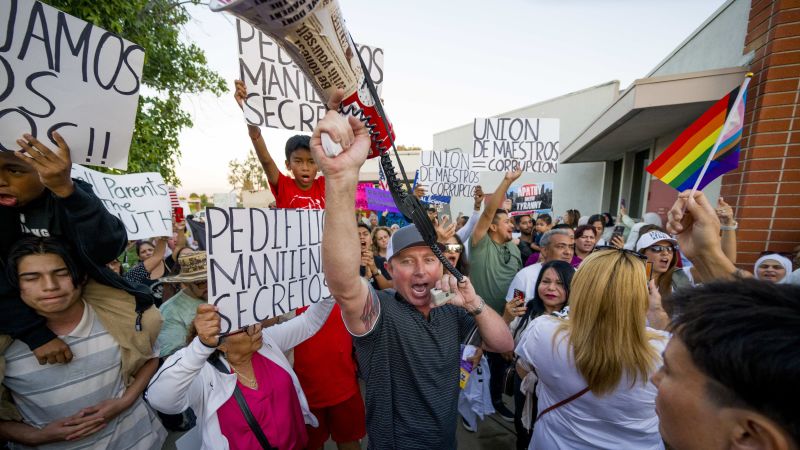The culture wars have taken center stage in a school district in Southern California, where heated debates over controversial policies championed by the “parental rights” movement led to the recall of two board members. These policies, which included guidelines for discussing race and gender in the classroom, ignited tensions within the community and brought national attention to the district. The recall effort symbolized the deep divide between those who supported more progressive approaches to education and those who favored a more traditional, conservative viewpoint.
The recall of the two board members signaled a shift in power dynamics within the district, as parents and community members who felt marginalized by the previous leadership took action to voice their opposition. The controversy underscored the broader struggle over the role of schools in shaping students’ views on social issues and the extent to which parental input should be considered in educational decision-making. The recall also highlighted the growing influence of political ideologies on local school governance, as national debates over critical race theory and other contentious topics spill over into local communities.
The recall campaign in the school district reflected a larger trend of heightened political polarization in America, as issues related to education and social justice become increasingly politicized. The competing visions for the direction of the school district mirrored the broader struggles over cultural values and societal norms playing out on a national scale. The recall vote served as a referendum on the direction of the district, with voters ultimately deciding to remove the board members whose policies had sparked controversy and division.
The aftermath of the recall in the school district left lingering questions about how to move forward and bridge the gap between different factions within the community. The need for healing and reconciliation was evident as the district sought to rebuild trust and find common ground on key educational issues. The recall served as a wake-up call for school leaders and policymakers to listen to the concerns of all stakeholders and strive for more inclusive decision-making processes that reflect the diverse perspectives within the community.
The ripple effects of the recall in the school district reverberated throughout the community and beyond, sparking conversations about the role of parental rights, free speech, and academic freedom in public education. The recall served as a stark reminder of the power of grassroots activism and the potential for grassroots movements to effect change at the local level. The controversy also raised important questions about the limits of parental influence in public education and the balance between individual rights and collective values in shaping school policies.
In conclusion, the recall of two board members in the school district was a microcosm of the larger culture wars playing out in America today, as communities grapple with competing visions of education and social values. The recall campaign highlighted the deep-seated divisions within the community and the challenges of navigating complex issues related to race, gender, and equity in education. Moving forward, the district faces the task of rebuilding trust, fostering dialogue, and finding common ground among diverse stakeholders as it seeks to chart a path forward that reflects the needs and concerns of all members of the community.


